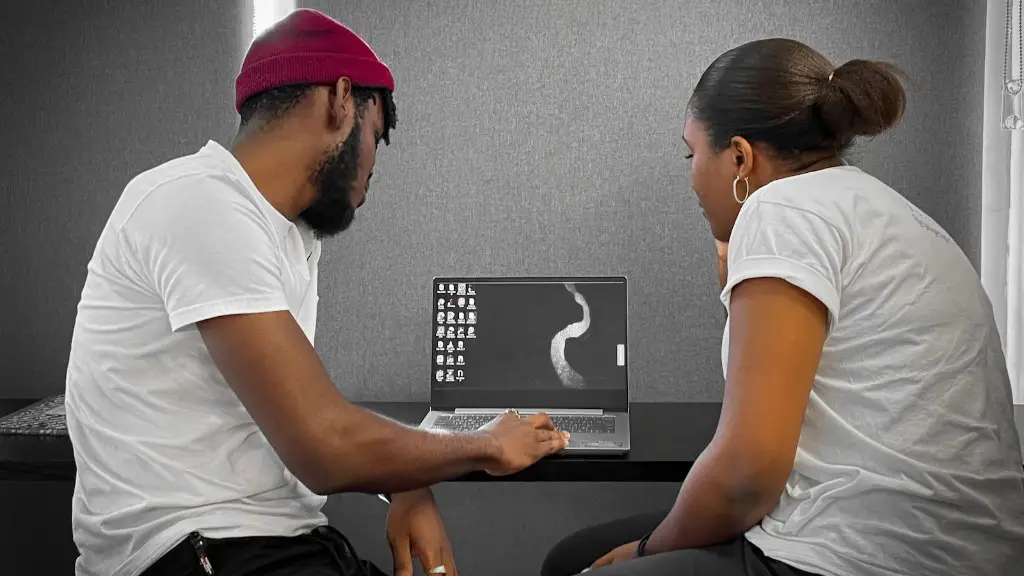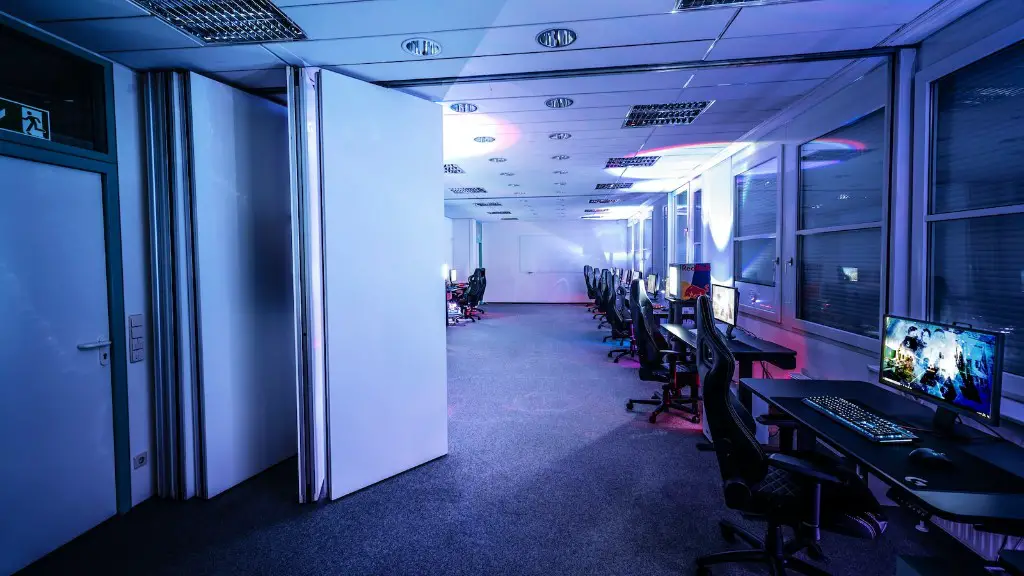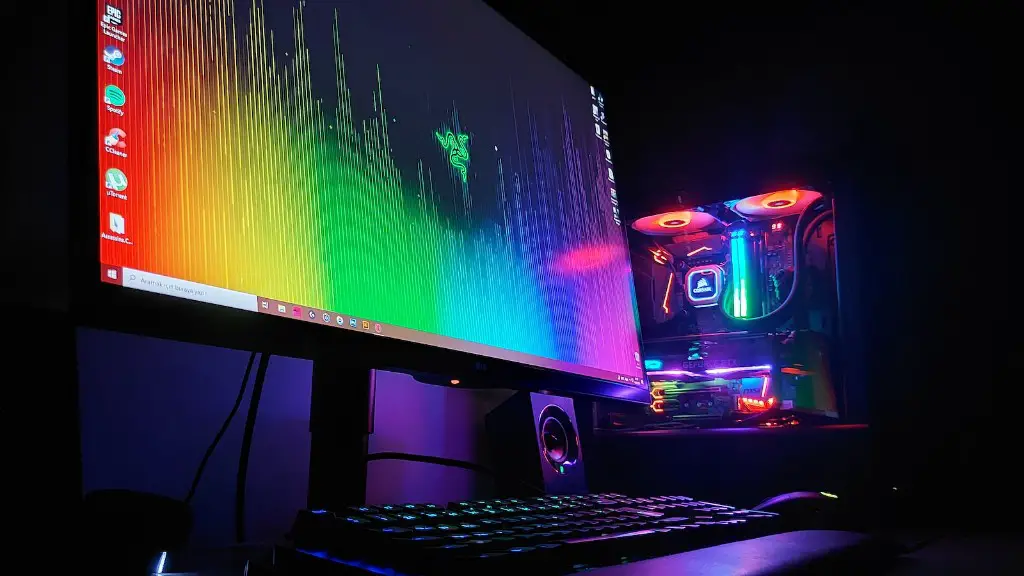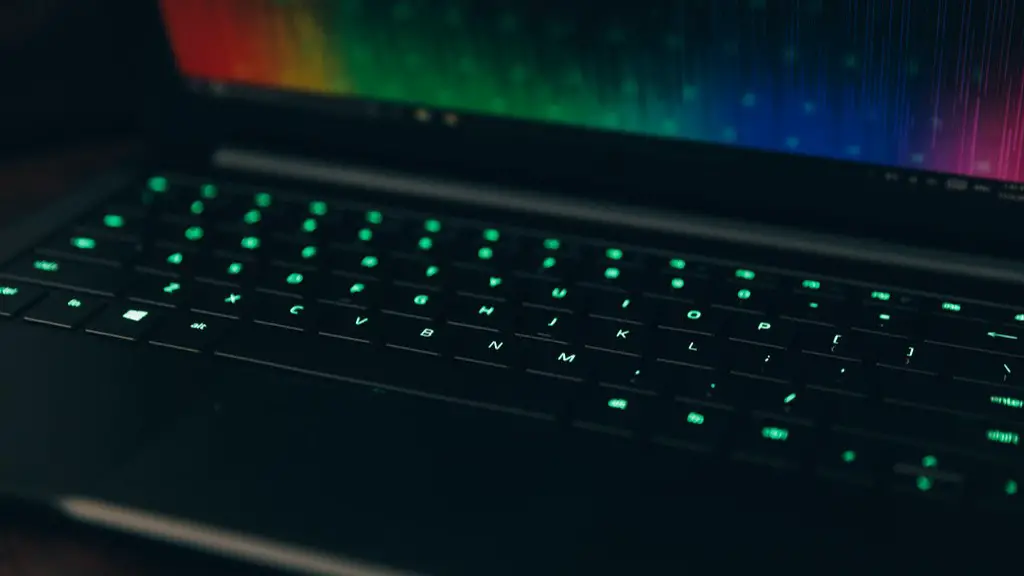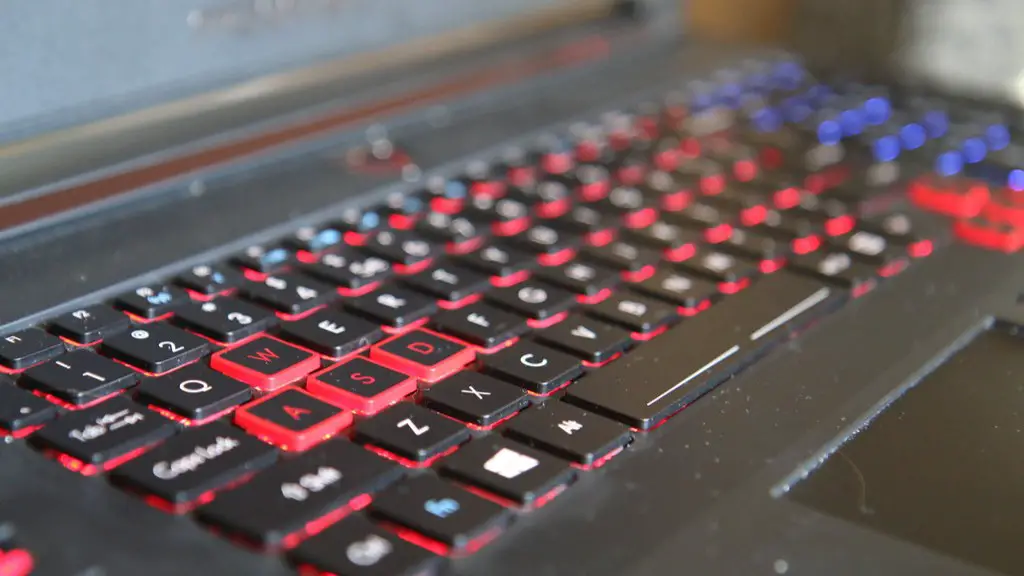If your gaming laptop is overheating, there are a few things you can do to help cool it down. First, make sure that the fan is running and that the vents are not blocked. If the fan isn’t running, you can try cleaning it with compressed air. If the vents are blocked, you can try using a can of compressed air to blow them out. You can also try putting the laptop on a cooling pad. These are all pretty easy things to do and should help cool your laptop down.
There are a few things you can do to cool your gaming laptop and extend its lifespan. First, make sure that the vents and cooling fans are not blocked. Secondly, use a laptop cooling pad to help distribute the heat away from the laptop. Lastly, don’t use your laptop on a soft surface like a bed or pillow, as this can block the vents and cause the laptop to overheat.
Why is my gaming laptop so hot?
As your gaming laptop gets hot, it’s normal for the fan to kick on and get louder. The fan helps to cool down the laptop and keep it from overheating. If you notice that your fan is running all the time or that your laptop is getting too hot, you can try a few things to help cool it down. Make sure that your laptop is in a well-ventilated area so that the fan can do its job. You can also try using a cooling pad or external fan to help keep your laptop cool. If you’re still having trouble, you may need to take your laptop to a service center to have it checked out.
If your laptop is overheating, there are a few things you can do to try and fix the issue. Check and clean the fans to make sure they’re not blocked and can spin freely. Whenever you feel your laptop getting hot, place your hand just next to the fan vents to see if they’re blowing out hot air. If they are, then the fans are working and you may need to Elevate your laptop to give the fans more room to work. Use a lap desk or something similar to raise it up off of your lap or any other surface. Controlling fan speed can also help. Many laptops have a built-in feature to do this, and there are also third-party programs you can use. Avoid using Intense processes or running too many programs at once, as this can put a strain on your laptop and cause it to overheat. Finally, Keep your laptop out of the heat. Don’t use it on a bed or other soft surface, and don’t put it in a bag or closed space where it can’t get proper ventilation.
Do gaming laptops need cooling
There is some truth to the idea that cooling a gaming laptop will help improve performance, as lower temperatures can lead to better overall stability and performance. However, it is important to keep in mind that simply adding a couple of fans to your laptop is not going to magically improve your gaming experience. If you are looking to improve your gaming laptop’s performance, it is important to focus on other areas such as upgrading the hardware or software.
A cooling pad can help to some extent, but the big fan might not be as impressive as it looks. The biggest gain from using a cooling pad is from raising the laptop up, allowing for better air circulation.
Is 100 degrees hot for gaming laptop?
Thermal throttling is a safety measure implemented in most computer hardware which reduces clock speeds to decrease temperature to safe levels. Usually, 75-80°C is perfectly normal for a gaming laptop under load. Any higher than this, and the performance will begin to decrease.
Most gaming laptops are able to keep CPU temperatures at 80 C or cooler when under similar circumstances. However, some laptops like the Asus Zephyrus M16 or Lenovo Legion 5 Pro have Core temperatures above 100 C. This can be considered a danger zone, especially for prolonged periods.
Is 90 degrees Celsius hot for a gaming laptop?
Thermal throttling is a safety measure implemented in most computer hardware which reduces clock speeds to decrease temperature to safe levels. Usually, 75-80°C is perfectly normal for a medium to high end gaming laptop under load. Any higher than this, and the performance will begin to decrease.
It is important to keep your laptop within a safe temperature range in order to avoid damaging the device. The safe temperature range for laptops is typically between 50 to 95 degrees Fahrenheit (10 to 35 degrees Celsius). This range refers to the optimal usage temperature of the outside environment and the temperature the laptop should be warmed to before using. If the temperature gets too hot or too cold, it can cause problems with the laptop’s performance and potentially damage the device.
How do I make my laptop less hotter
If you want to extend the life of your laptop and avoid any potential damage, there are some simple things you can do. Avoid using your laptop on carpeted or padded surfaces, as this can block ventilation and cause the laptop to overheat. It’s also a good idea to elevate your laptop at a comfortable angle when using it, as this can help improve airflow and keep things cooler. In general, it’s also important to keep your laptop and workspace clean, as dust and dirt can impact performance and cause damage. Finally, be sure to understand your laptop’s typical performance and settings, as well as any cleaning and security software that may be installed. If your laptop tends to run hot, you may also want to consider using cooling mats or heat sinks to help dissipate heat.
It’s not a good idea to use cooling pads for laptops. The pad will just blow a lot of air (and dust) inside your laptop, causing some sensors inside thinking they are cool and can carry on stressing the computer. If a laptop is overheating, then it means there’s something wrong with its cooling system.
Do cooling pads help laptops?
Laptop cooling pads are a great way to keep your laptop cool and working properly. They have fans in them which help flow cool air keeping your laptop cool all time. It also helps raise your laptop, which gives the components better airflow and prevents them from overheating.
A good gaming laptop will last you around 5 years in terms of performance. Pick a laptop that has the same or better performance than a console. The graphics processing unit (GPU) will have the biggest impact on a gaming laptop’s lifespan. Most of the hardware in a gaming laptop cannot be upgraded, so make sure to spend your money on the right components.
Do all gaming laptops overheat
Yes, it is normal for gaming laptops to get hot, especially during demanding tasks such as gaming or running resource-intensive applications. This is due to the high-performance components and the compact design of gaming laptops, which can lead to heat buildup. However, there are some things you can do to help keep your laptop cool, such as using a cooling pad or making sure that the vents are not blocked.
The RTX 3080 has a maximum temperature specification of 93c, so 80c is well within that. However, it is worth noting that the RTX 3080 does tend to run quite warm, so 80c is definitely on the warmer side. If you’re concerned about temperature, you may want to consider using a custom cooling solution or doing some additional case cooling.
Why does my gaming laptop sound like a jet engine?
There are a few possible reasons why your computer fan and hard drive might be making a lot of noise. One possibility is that they are simply getting old and accumulating dust, which can make them less efficient and cause them to make more noise. Another possibility is that something is wrong with the fan or hard drive itself, and it needs to be replaced. If the noise is really bothersome, you might want to consult a computer technician to see if there’s anything you can do about it.
A normal CPU temperature range is different for every CPU. Generally, anything between 40-65°C (or 104-149°F) is considered a safe heat range for a normal workload. While running more intensive apps or games, the normal CPU temp range can increase to between 70-80°C (158-176°F).
Is 90c too hot for CPU
Temperatures above 80 degrees Celsius or 176 degrees Fahrenheit can be dangerous for your CPU. If the temperature reaches 90 degrees Celsius (194 Fahrenheit) or higher, it could lead to permanent damage and render the CPU useless.
The rule of thumb is that graphics cards should stay under 80 degrees Celsius or 176 degrees Fahrenheit. This is because graphics cards can overheat and cause damage to components. Overheating can also lead to performance problems.
Final Words
1. Turn down the graphics settings in your game.
2. Close any programs you have running in the background.
3. Place your laptop on a cool, hard surface.
4. Turn off your laptop when you’re not using it.
Assuming you want a text-based conclusion:
One way to cool your gaming laptop is to use a cooling pad. A cooling pad usually sits underneath the laptop and has one or more fans that help circulate air and keep the laptop cool. Another way to keep your laptop cool is to make sure that the vents are not blocked and that the fan is working properly. You can also try to keep the laptop in a cool, dry environment.
